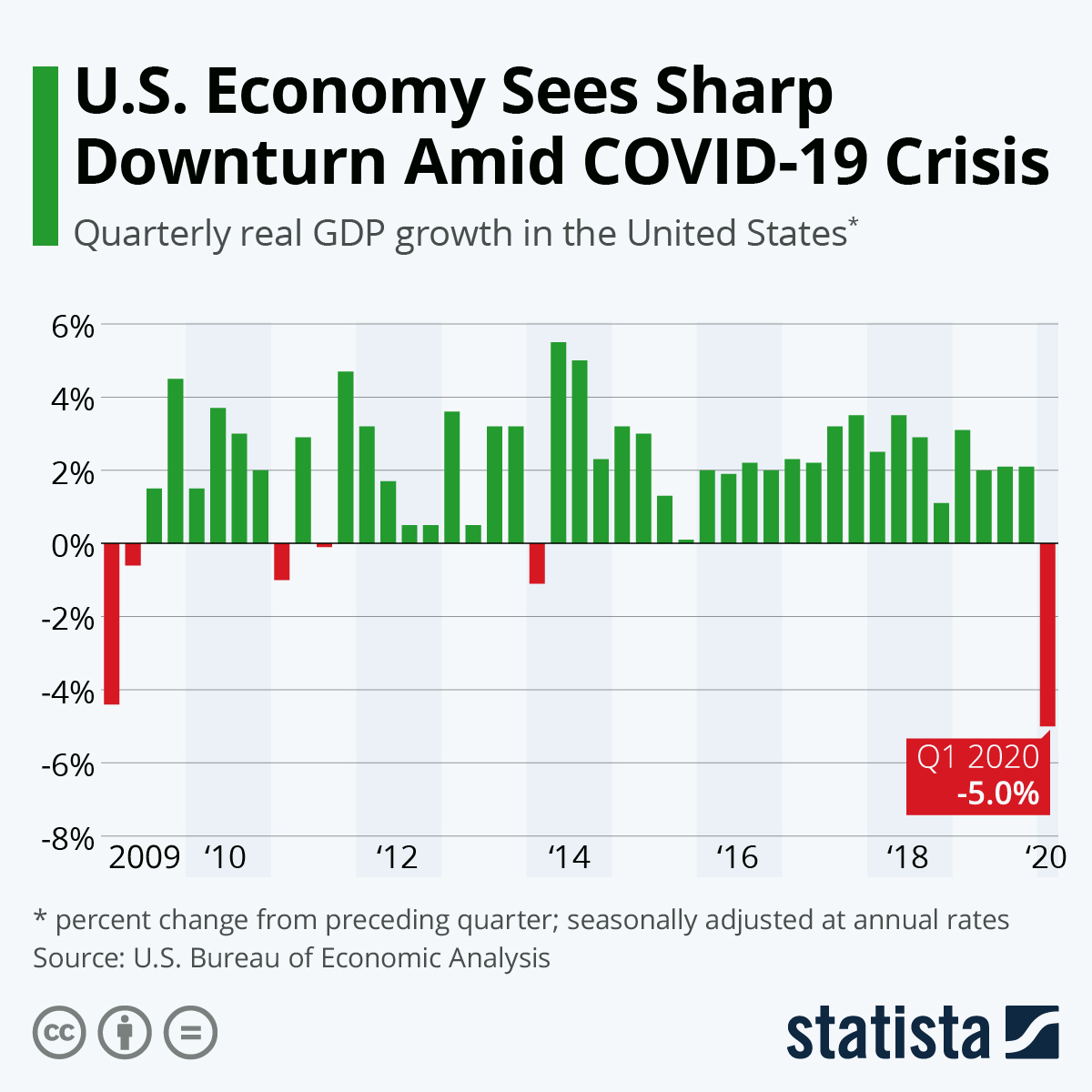After 23 quarters of uninterrupted growth, the U.S. economy contracted for the first time since 2014 in the first three months of 2020. According to preliminary data released by the U.S. Bureau of Economic Analysis on Wednesday, real GDP declined by 4.8 percent in Q1 2020 compared to the previous quarter, marking the worst contraction since Q4 2008.
Coming in the middle of the COVID-19 crisis that has hit the U.S. economy with full force in late March, today’s negative reading was widely expected and is feared to be a mere taste of worse things to come. Considering that large parts of the country have been on lockdown through all of April and that more than 25 million Americans lost their jobs in the five weeks ended April 18, it’s all but certain that things will get worse before they get better.
“The decline in first quarter GDP was, in part, due to the response to the spread of COVID-19, as governments issued “stay-at-home” orders in March,” the BEA wrote in its official release. “This led to rapid changes in demand, as businesses and schools switched to remote work or canceled operations, and consumers canceled, restricted, or redirected their spending.”
While not officially the end of the longest expansion in U.S. history – a recession is widely defined as two consecutive quarters of negative GDP growth and has to be officially declared by the National Bureau of Economic Research’s Business Cycle Dating Committee – experts consider a recession inevitable at this point, the question now being how long it will last.
source statista

You will find more infographics at Statista
Image by Gerd Altmann from Pixabay
Ask me anything
Explore related questions





